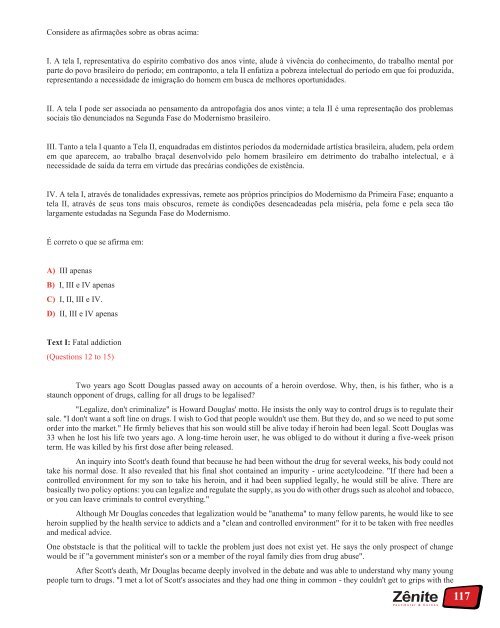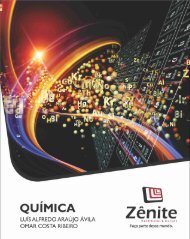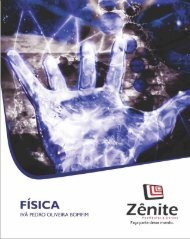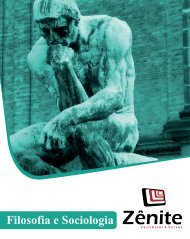You also want an ePaper? Increase the reach of your titles
YUMPU automatically turns print PDFs into web optimized ePapers that Google loves.
Considere as afirmações sobre as obras acima:<br />
I. A tela I, representativa do espírito combativo dos anos vinte, alude à vivência do conhecimento, do trabalho mental por<br />
parte do povo brasileiro do período; em contraponto, a tela II enfatiza a pobreza intelectual do período em que foi produzida,<br />
representando a necessidade de imigração do homem em busca de melhores oportunidades.<br />
II. A tela I pode ser associada ao pensamento da antropofagia dos anos vinte; a tela II é uma representação dos problemas<br />
sociais tão denunciados na Segunda Fase do Modernismo brasileiro.<br />
III. Tanto a tela I quanto a Tela II, enquadradas em distintos períodos da modernidade artística brasileira, aludem, pela ordem<br />
em que aparecem, ao trabalho braçal desenvolvido pelo homem brasileiro em detrimento do trabalho intelectual, e à<br />
necessidade de saída da terra em virtude das precárias condições de existência.<br />
IV. A tela I, através de tonalidades expressivas, remete aos próprios princípios do Modernismo da Primeira Fase; enquanto a<br />
tela II, através de seus tons mais obscuros, remete às condições desencadeadas pela miséria, pela fome e pela seca tão<br />
largamente estudadas na Segunda Fase do Modernismo.<br />
É correto o que se afirma em:<br />
A ) III apenas<br />
B ) I, III e IV apenas<br />
C ) I, II, III e IV.<br />
D ) II, III e IV apenas<br />
T ex t I Fatal : addiction<br />
(Questions 12 to 15)<br />
Two years ago Scott Douglas passed away on accounts of a heroin overdose. Why, then, is his father, who is a<br />
staunch opponent of drugs, calling for all drugs to be legalised?<br />
"Legalize, don't criminalize" is Howard Douglas' motto. He insists the only way to control drugs is to regulate their<br />
sale. "I don't want a soft line on drugs. I wish to God that people wouldn't use them. But they do, and so we need to put some<br />
order into the market." He firmly believes that his son would still be alive today if heroin had been legal. Scott Douglas was<br />
33 when he lost his life two years ago. A long-time heroin user, he was obliged to do without it during a five-week prison<br />
term. He was killed by his first dose after being released.<br />
An inquiry into Scott's death found that because he had been without the drug for several weeks, his body could not<br />
take his normal dose. It also revealed that his final shot contained an impurity - urine acetylcodeine. "If there had been a<br />
controlled environment for my son to take his heroin, and it had been supplied legally, he would still be alive. There are<br />
basically two policy options: you can legalize and regulate the supply, as you do with other drugs such as alcohol and tobacco,<br />
or you can leave criminals to control everything."<br />
Although Mr Douglas concedes that legalization would be "anathema" to many fellow parents, he would like to see<br />
heroin supplied by the health service to addicts and a "clean and controlled environment" for it to be taken with free needles<br />
and medical advice.<br />
One obststacle is that the political will to tackle the problem just does not exist yet. He says the only prospect of change<br />
would be if "a government minister's son or a member of the royal family dies from drug abuse".<br />
After Scott's death, Mr Douglas became deeply involved in the debate and was able to understand why many young<br />
people turn to drugs. "I met a lot of Scott's associates and they had one thing in common - they couldn't get to grips with the<br />
1 1 7

















